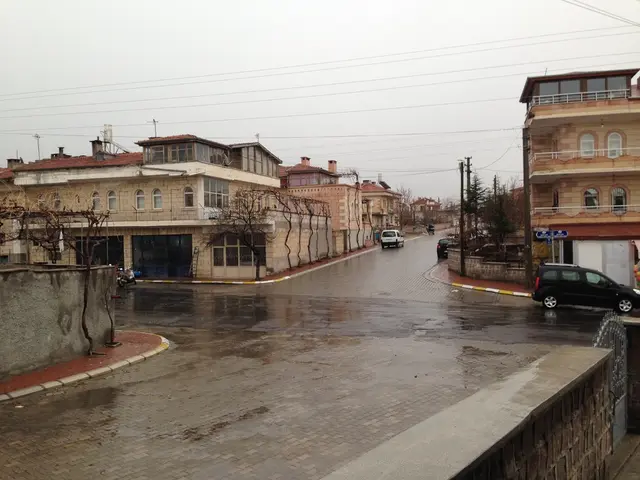Urban Agriculture Innovations: Experimenting with Kale and Other Edible Plants to Amend Urban Food Systems
Urban Cities Pursuing Sustainable Food Systems Through Agile Collaboration and Piloting
Cities, as hubs of innovation, are key players in promoting sustainable food systems. A prime example is Helsinki, Finland, which actively fosters edible cities by offering businesses a fertile ground to grow and implement sustainable local food initiatives.
Embracing the Edible City Concept
An edible city integrates food production into its urban fabric, harnessing both public and private spaces to grow, distribute, and consume food. Edible city solutions encourage local food consumption, promote healthier lifestyles, and encourage community involvement, while reducing the environmental footprint of food systems.
Urban Revitalization Through Agile Piloting
As urbanisation accelerates, cities will account for 80% of global food consumption by 2050. To leverage this demographic shift, cities should be viewed as testbeds for innovation. Helsinki embraces this philosophy, contrasting its concrete-heavy areas with green spaces, such as temporary parks rescued from urban decay.
With its open and transparent innovation ecosystem, Helsinki encourages businesses to try new technologies and ways of operating within the city. Services like Testbed Helsinki provide businesses with the resources they need to pilot and experiment, without stifling creativity.
Collaborative Efforts: Forum Virium Helsinki and Blokgarden
Local companies, like Forum Virium Helsinki and Blokgarden, play pivotal roles in fostering collaboration between businesses and cities. Forum Virium Helsinki, an innovation company owned by the City of Helsinki, works closely with companies, universities, public organizations, and residents to shape the urban future.
Through the Agile Piloting Program, companies propose pioneering solutions to urban challenges. Projects like Circular Green Blocks, aimed at promoting the sharing economy in housing units, and community gardens in the urban district of Malminkartano, illustrate how these collaborative efforts can lead to innovative urban spaces.
Forecasting the Future: Urban Farming in Helsinki by 2030
The edible city vision for 2030 envisions decentralized urban farming centers as hubs for agriculture, enabling professional urban farmers to operate across cities. These centers would offer resources, spaces, technical support, and tools for efficient and sustainable food production.
Decentralized urban farming could see the use of rooftops, hydroponic systems, and a variety of indoor and outdoor locations for cultivation. The potential customer base would span grocery stores, restaurants, companies, farmers' markets, and local food cooperatives.
The Role of Cities in Transforming Food Systems
Cities need to evolve, focusing on enabling rather than restricting, to speed up the transition towards sustainable food systems. This transformation requires new approaches in land use, permitting processes, and urban planning.
Helsinki is paving the way, experimenting with initiatives that seamlessly integrate food systems into city life. By 2030, it may be on the forefront of a revolutionary agricultural landscape that serves as a model for other cities to emulate.
For more information about agile piloting, explore the "Agile Pilots Cook Book."
[1] Plassnig SN, Pettit M, Reichborn-Kjennerud K, and Säumel I (2022). Successful scaling of Edible City Solutions to promote food citizenship and sustainability in food system transitions. Front. Sustain. Cities 4:1032836. doi: 10.3389/frsc.2022.1032836.
- Leveraging technology, the environmental-science field can help urban cities collaborate and pilot solutions for sustainable food systems, such as urban farming, within their city structures.
- Cities like Helsinki can foster a healthier lifestyle by adopting edible city concepts, which emphasize food production integration into the urban fabric, promoting local food consumption, and reducing the environmental footprint.
- With urban revitalization and agile piloting, cities can experiment with new technologies and ways of operating, encouraging businesses to test innovative food solutions aimed at environmental-science and climate-change mitigation, like decentralized urban farming.








